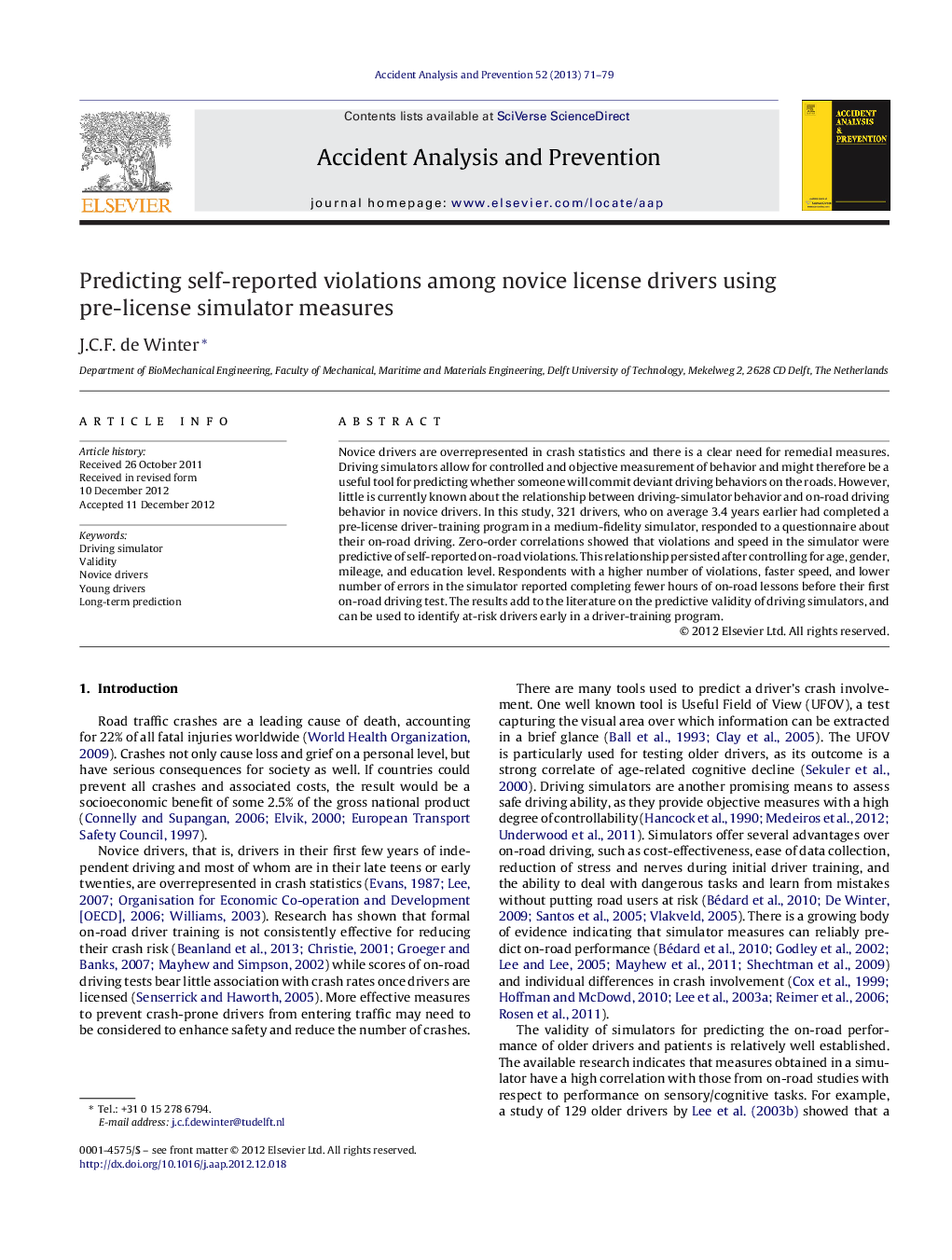| Article ID | Journal | Published Year | Pages | File Type |
|---|---|---|---|---|
| 572545 | Accident Analysis & Prevention | 2013 | 9 Pages |
Novice drivers are overrepresented in crash statistics and there is a clear need for remedial measures. Driving simulators allow for controlled and objective measurement of behavior and might therefore be a useful tool for predicting whether someone will commit deviant driving behaviors on the roads. However, little is currently known about the relationship between driving-simulator behavior and on-road driving behavior in novice drivers. In this study, 321 drivers, who on average 3.4 years earlier had completed a pre-license driver-training program in a medium-fidelity simulator, responded to a questionnaire about their on-road driving. Zero-order correlations showed that violations and speed in the simulator were predictive of self-reported on-road violations. This relationship persisted after controlling for age, gender, mileage, and education level. Respondents with a higher number of violations, faster speed, and lower number of errors in the simulator reported completing fewer hours of on-road lessons before their first on-road driving test. The results add to the literature on the predictive validity of driving simulators, and can be used to identify at-risk drivers early in a driver-training program.
► Pre-license violating behavior in a driving simulator predicts self-reported post-license traffic violations several years later. ► Respondents with a higher number of violations, faster speed, and lower number of errors in the simulator reported completing fewer hours of on-road lessons before their first on-road driving test. ► Individual differences in self-reported violations on-road are detectible even before a person takes lessons in a real car.
